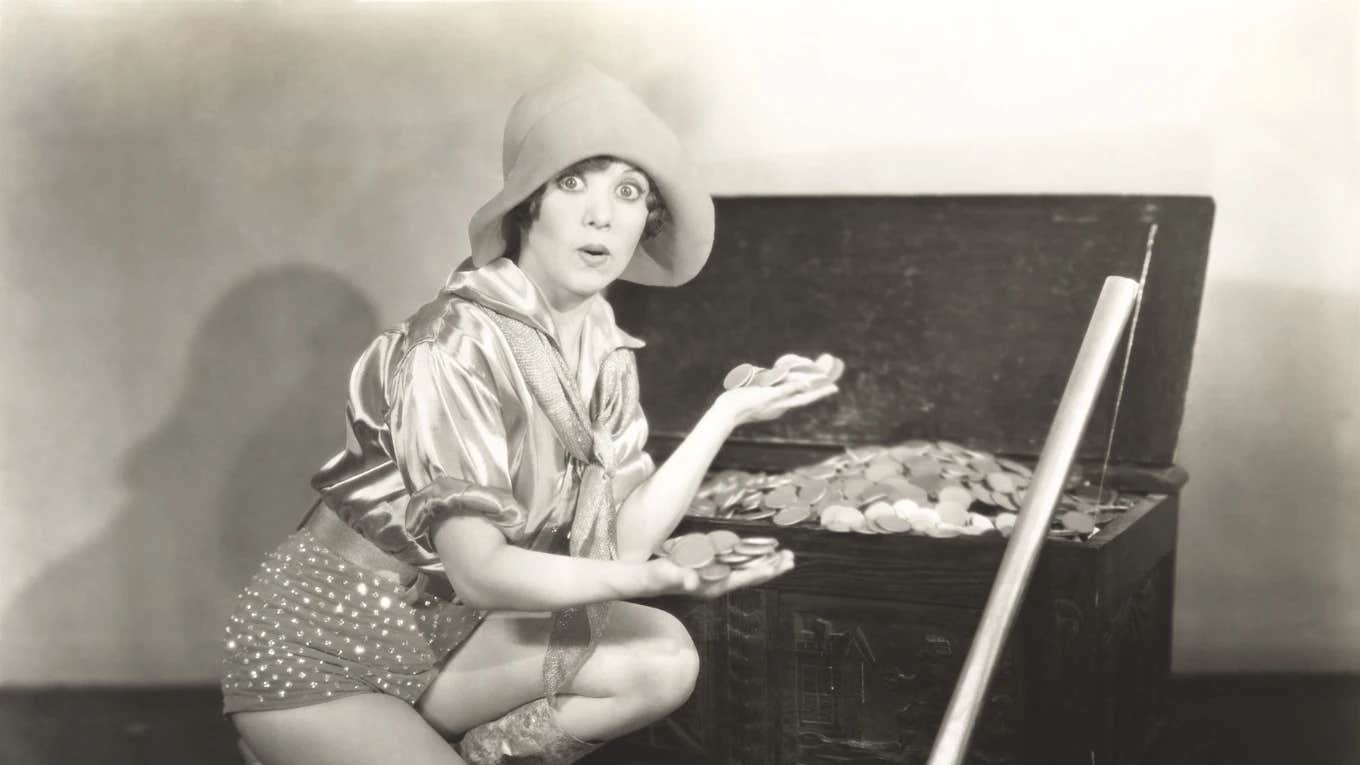3 Old-Fashioned Money Habits That Need To Make A Comeback, According To A Money Coach
They may feel out of date, but our moms and grandpas might have been on to something.
 Everett Collection | Shutterstock | Canva Pro
Everett Collection | Shutterstock | Canva Pro The world is so vastly different from the one our parents and grandparents inhabited that it can often feel like their ways of doing things simply don't make sense. Given how the economy has changed since their day, that can feel doubly true when it comes to managing your finances.
Yet finance expert and money mindset coach Vee says that there was an awful lot of wisdom in those fuddy-duddy approaches to money from back in the day. Not everything they did makes sense anymore — like stashing cash between the mattresses during the Depression, for one — but there are certain pieces of advice we'd do well to heed.
Here are 3 old-fashioned money habits that need to make a comeback:
1. 'Your parents were right: You do have food at home'
"No, we have plenty of food at home," I can hear my mom saying as we drove past the local McDonald's. It really does seem like a lot of us could stand to live by this maxim again as adults.
"Maybe some of us are just making up for the fact that we heard this every single time we would ask to stop at McDonald's or Burger King," Vee said. "Now that we're older, we're like, OK, we're gonna eat out whenever that urge hits."
Whatever the motivation, we really are eating out seemingly all the time these days. According to U.S. Department of Agriculture data, Americans currently eat about a third of their calories at restaurants, up from just 6% in the 1970s.
Add in all those exorbitant DoorDash and UberEats charges, and it really is a wallet drainer. "When you're trying to do better financially, moderation is your best friend," Vee said. "So your parents were correct: There is food at home, and the more you remind yourself of this, the more money you will likely save."
Before you start: Yes, groceries are expensive these days, but no they are NOT as expensive as dropping $30 on a DoorDashed Chipotle burrito every night, no matter what social media tells you. Go to the store!
2. Learning how to make do
"Overconsumption is out of control right now," Vee said, "with a lot of people upgrading and buying just for the sake of it. And unfortunately, it keeps a lot of people broke."
"I honestly don't think that it used to be this way," added, and it's pretty hard to argue with her. "Make do and mend" was literally a public service message in the UK during World War II, when resources were scarce and had to be held in reserve to aid the country's defense efforts.
That ethos really has disappeared from our culture.
Though it has been making a comeback — all those Millennial weddings we went to with Mason jars for glasses didn't just pop up out of nowhere! There's been a trend in recent years of younger people reverting to the old ways of doing things, with pickling and canning being the latest example.
Not only are these interesting (and sometimes delicious) hobbies, but they're money-savers too.
3. Using cash for everyday purchases
If you're under the age of say 35, cash is this thing that used to be ubiquitous — that was money printed on paper and sometimes metal nuggets called "coins." You carried it in your pocket and used it to buy things back in the Dark Ages before Apple Pay.
I kid of course, but be honest, when is the last time you even carried any cash unless you're an old-timer? Vee says this is another old practice that should come back. "I'm all for using a credit card and getting those reward points," she said, but credit cards easily become dangerous.
"If you're the type of person who tends to overspend when you use a credit card, your best bet is really to just go back to an old-fashioned envelope method," where you have different envelopes for bills, expenses, and discretionary income and divvy up your cash between them each week.
The key, of course, is "you only spend what you have" — which is hard to do even when you run on cash. But the intangible-ness that money takes on when it's just an unseen entity attached to a card, rather than the literal paper you hold in your hand, really can make a difference — one you might just see in your bank account down the line.
John Sundholm is a writer, editor, and video personality with 20 years of experience in media and entertainment. He covers culture, mental health, and human interest topics.

